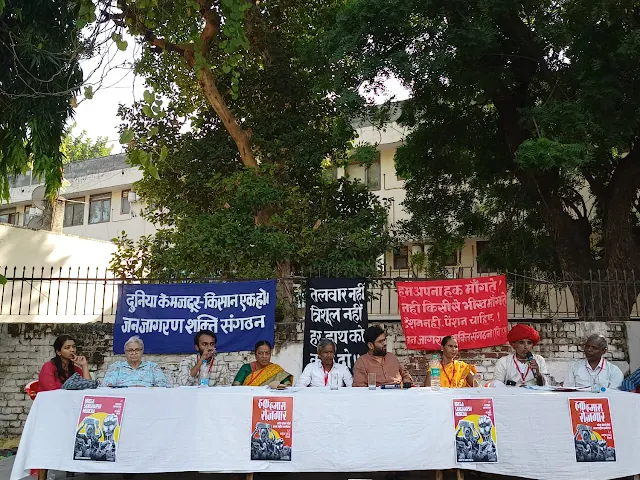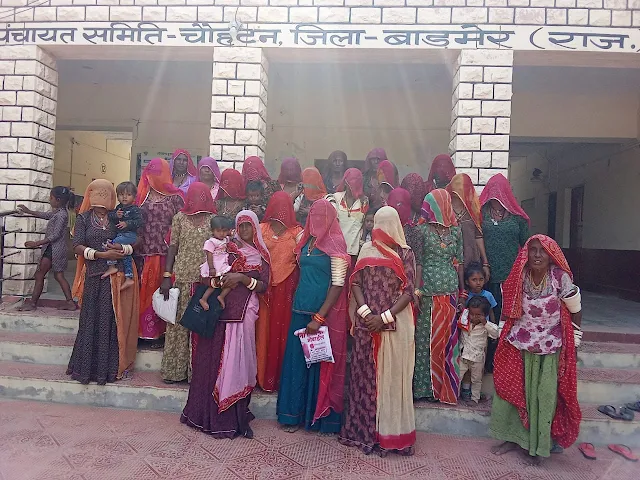India is among very few developing countries to have a rural employment guarantee scheme. Apart from providing employment during the lean farm work season, this scheme can make a big contribution to important needs like water and soil conservation. Workers can get employment within or very near to their village on the kind of work which improves the sustainable development prospects of their village.
Under this law people of any village can ask for employment according to simple procedures described in the National Rural Employment Guarantee Act (NREGA), and employment must be provided to them within a fixed period.
The guarantee aspect is supposed to be ensured by an additional provision in the law that if employment is not provided within the stipulated period, then a compensatory payment will be made to all those workers who had demanded employment. However this was watered down by the authorities by shrewdly adding that such payment will be provided subject of availability of funds.
On the whole the compensatory aspect has been implemented only very rarely, and this is how the guarantee aspect of the pioneering legislation has been weakened.
Hence it was particularly courageous on the part of the women workers from poor households in a very remote village Dhok (located in the desert district of Barmer in Rajasthan) to stand up with determination for their right to get the compensatory payment.
As they had demanded work using the proper legal procedure but did not get employment, they showed a lot of determination in raising the demand for compensation. When they did not get the payment, helped by a ‘mahila sangathan’ ( women’s rights organization) activist Anita Soni they formed a group and came to the block office to meet the concerned officials.
The officials stated that they will consider their demand sympathetically. The women asserted with firmness that if their demand is accepted by officials here they will be thankful to them, but if the demand is not accepted then they are prepared to go right up to the state capital city of Jaipur to ensure that the demand for compensatory payment is accepted.

What has been seen recently in Barmer is a reflection of much wider problems in the implementation of NREGA. The budgetary allocation for NREGA is much less than the real need to fulfil the guarantee part of the law. Further its implementation is marred by widespread corruption. Systems of transparency and social audits which could have helped to reduce corruption have not been implemented properly.
On the other hand arbitrary actions brought the much needed law to a standstill in the state of W. Bengal for several months. In many states the NREGA wage rate is lower than the agricultural wage rate, and needs to be increased significantly. Procedures like ABPS and NNMS introduced as reforms have complicated the scheme and made it difficult for several workers to access this.
Several activists who have been trying to improve the working of this scheme at the grassroots assembled at a national convention and raised several of these demands. Such efforts are increasing in the context of several states like Jharkhand, W. Bengal and Rajasthan and the government should take overdue steps at the national level to ensure that the NREGA is able to live up to its rich potential and the expectations of people.
Apart from helping the weaker sections a lot, NREGA can also make an important contribution to climate change mitigation and adaptation.
*Honorary convener, Campaign to Save Earth Now. Books: “Man over Machine”, “Protecting Earth for Children”, “India’s Quest for Sustainable Farming and Healthy Food”
Courtesy: CounterView

